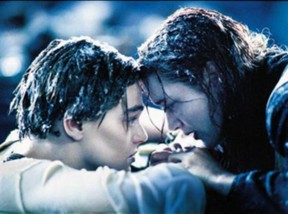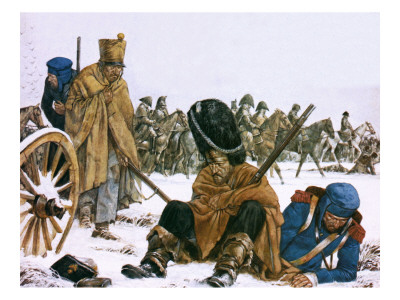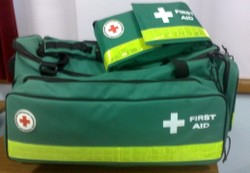Every year, there are an average 1560 reported cases of hypothermia in the USA. Around 650 of them prove fatal.
In my native Britain, a combination of rising fuel costs and the temperature dipping very low in winter means that the figures are much higher. During 2012/13, emergency staff recorded 28,354 people needing hypothermia treatment.
It was up 25% on the previous year, which in itself was 50% higher than the year before that. But on the bright side, so many people rationing their heat meant that energy companies filed profits of over £15billion.
Assuming that you care more for lives than a corporation's bottom line, would you be able to recognize the signs of hypothermia and know how to treat it?


 The sinking of the Titanic was one of the most famous disasters in history, mostly because of the James Cameron movie about it. But ask people how most of the victims died and the majority will get it wrong.
The sinking of the Titanic was one of the most famous disasters in history, mostly because of the James Cameron movie about it. But ask people how most of the victims died and the majority will get it wrong.








 St Tydecho's Churches in West Waleson 09/03/2014
St Tydecho's Churches in West Waleson 09/03/2014
 Goodies for an Outlander Premiere Partyon 03/06/2015
Goodies for an Outlander Premiere Partyon 03/06/2015
 Holocaust Memorial Day Interview with Rainer Höss, Grandson of Rudolf Architect of Auschwitzon 01/24/2015
Holocaust Memorial Day Interview with Rainer Höss, Grandson of Rudolf Architect of Auschwitzon 01/24/2015
 Romantic Valentine Gifts for an Outlander Fanon 01/16/2015
Romantic Valentine Gifts for an Outlander Fanon 01/16/2015



Comments
LOL I like you. I'm keeping you. <3
You are, of course, ageless, Jo. When did you discover the elixir of youth?
Frank - All fabulous advice! Thank you very much.
I particularly like the bit about knowing our limitations and accepting that we're no longer in our twenties (excepting those who are!).
Sheilamarie - I can concur with you there.
Prevention is better than cure. Firstly, avoid conditions that might be overmuch for you. Avoid very strong winds, which sap energy. We must all accept our limitations. Secondly, if you are out in cold conditions, ensure that you have as much body coverage as possible. This means gloves, not those with finger tips cut off, and a suitable hat, preferably a balaclava. A spare sweater and waterproofs are important in winter. A flask of hot drink is important, as is sugary food, such as chocolate or Kendal mint cake. A bivvy bag to nestle in is a great safety device.
One problem that some of us here might face is a failure to realize that we are no longer in our twenties, and we cope with cold less well as we age, especially as we pass sixty. As a male, I am constitutionally prone to this delusion, but when working alongside my thirty three year old son, I am reminded very forcefully of the passage of time. Your limbs lose flexibility as you age, so your passage over rough mountain ground will be slower than it once was. allow for this slowing factor if you are walking in mountains, because you might be caught out in cold and dark. The fact that I am now in receipt of U.K. government winter fuel allowance [for people over sixty] reminds me that if I walk in winter hills I have to be more careful.
I've had my experiences of this, too. Not fun.
Me too! Absolutely me too! I meant to look up the psychology being paradoxical undressing, but I haven't been there yet.
WordChazer - If it's getting the word out, then I'm giving blanket permission for anyone to spin anything off these articles. Have you got Mountain Rescue mates then?
cmoneyspinner - Thank you so much. And yes, it's quite horrific to read about those Napoleonic soldiers and what they witnessed on the way back.
Great timely article. I have contacts asking me to share as much as you write about this, so with your permission there may be a spin off on that this weekend. As we live in a house without heating I know a fair bit about low level hypothermia and regularly wrap up in layers as a result.